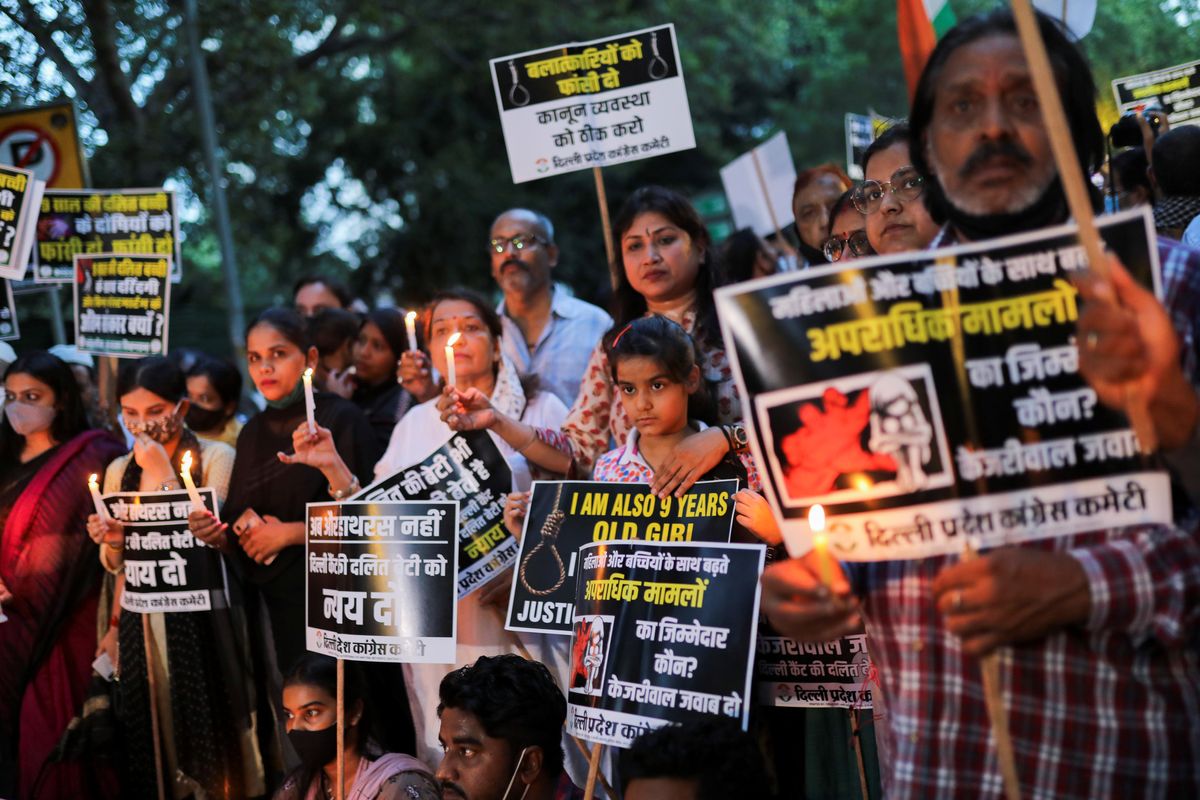India's rape problem: Hundreds of protesters have flocked to the streets of New Delhi for four days straight after a 9-year old girl was raped and murdered in a small village outside the capital while going to fetch water for her family. Some demonstrators burned effigies of India's PM Narendra Modi, saying that the government has not done enough — or anything, really — to address the country's abysmal rape problem: there were more than 32,000 rapes recorded in 2019, certainly a vast undercount given the stigma associated with reporting sexual assaults in India. The scourge of sexual violence against women and girls in India was brought to light in 2012 when a 23-year-old woman was gang raped and murdered while traveling on a bus in the nation's capital, prompting international outrage. Four men have been arrested in connection with this week's attack, though they have not been charged. The city of New Delhi, meanwhile, has ordered an inquiry to probe events surrounding the young girl's death, though Indians who have been sounding the alarm on violence against women for decades aren't expecting much to come of it.
Iranian antics in the Arabian Sea: Iran has upped the ante in the ongoing maritime wars: last week, an Iranian drone attack on an Israeli-linked tanker operated by a British company, killed a Briton and a Romanian, prompting British PM Boris Johnson to warn of "serious consequences." Now, this week, the Brits said another tanker off the coast of the United Arab Emirates had been hijacked, likely by Tehran, though the ship has since been declared safe. What's Iran's strategy here? The drone attack fits into the pattern of the ongoing Israel-Iran shadow war (Israel has targeted several Iranian vessels bound for Syria, transporting oil and weapons.) But some observers wonder whether all these high-seas shenanigans could also be an attempt by Iran's powerful and ultra-hardline Islamic Revolutionary Guards Corps to scuttle ongoing negotiations on a return to the 2015 nuclear deal. The last round of talks in Vienna adjourned in June, and while the Biden administration says it's committed to returning to the negotiating table, trust between Washington and Tehran is extremely low.
Guatemala appoints possible fox to mind hen house: Guatemala has appointed a new anti-corruption prosecutor, just weeks after the dismissal of his predecessor provoked street protests and drew a stern rebuke from los yanquis. The Central American country ranks a lowly 149th on the Corruption Perceptions Index, and recent efforts to change that have been less than inspiring. Back in 2019, the government kicked out a UN body that was probing graft, creating its own local anti-corruption team instead. In July, the government of President Alejandro Giammattei sacked the leader of that group, who fled to neighboring El Salvador and claimed he'd been ousted for finding out things that Giammattei didn't want him to know. Protesters then hit the streets and the Biden administration, which is trying to stamp out corruption in the region, called foul. The new guy, Rafael Curruchiche, is a former prosecutor focused on electoral crimes. But critics point out past allegations that he too has used his power to protect corrupt politicians, including former president Jimmy Morales.







